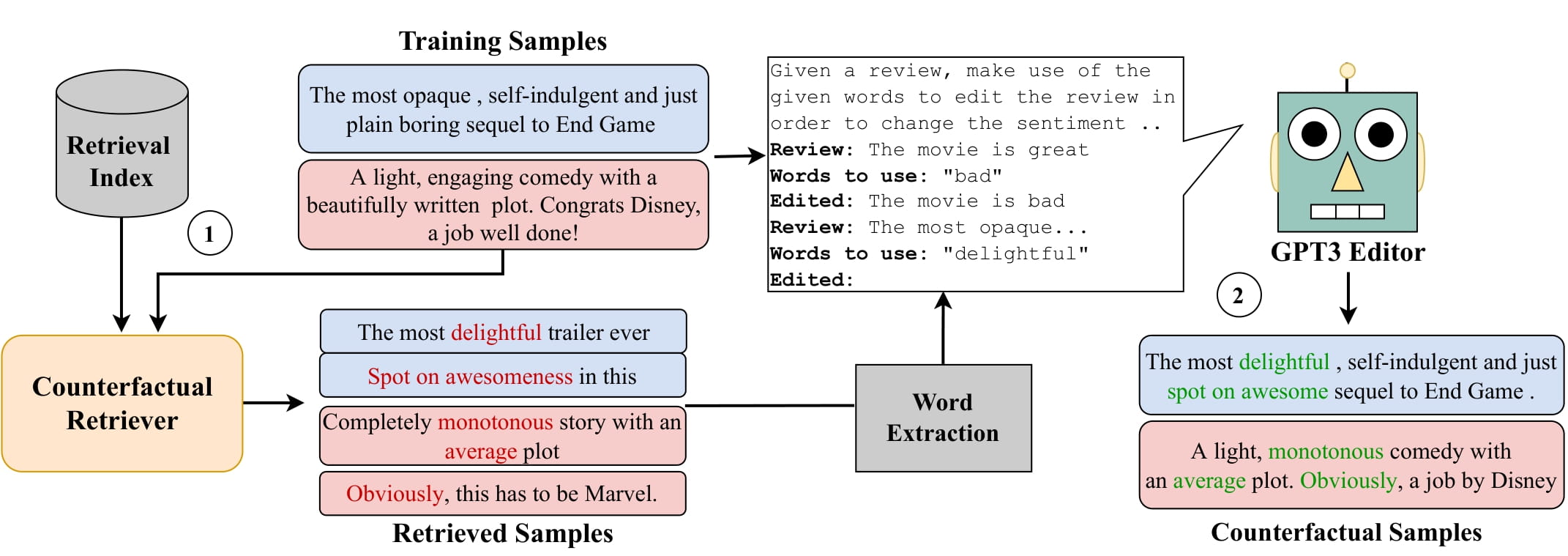CORE: A Retrieve-then-Edit Framework for Counterfactual Data Generation
Counterfactual data augmentation (CDA) -- i.e., adding minimally perturbed inputs during training -- helps reduce model reliance on spurious correlations and improves generalization to out-of-distribution (OOD) data. Prior work on generating counterfactuals only considered restricted classes of perturbations, limiting their effectiveness. We present COunterfactual Generation via Retrieval and Editing (CORE), a retrieval-augmented generation framework for creating diverse counterfactual perturbations for CDA. For each training example, CORE first performs a dense retrieval over a task-related unlabeled text corpus using a learned bi-encoder and extracts relevant counterfactual excerpts. CORE then incorporates these into prompts to a large language model with few-shot learning capabilities, for counterfactual editing. Conditioning language model edits on naturally occurring data results in diverse perturbations. Experiments on natural language inference and sentiment analysis benchmarks show that CORE counterfactuals are more effective at improving generalization to OOD data compared to other DA approaches. We also show that the CORE retrieval framework can be used to encourage diversity in manually authored perturbations
PDF Abstract






 GLUE
GLUE
 SST
SST
 MultiNLI
MultiNLI
 IMDb Movie Reviews
IMDb Movie Reviews
 SNLI
SNLI
 ANLI
ANLI